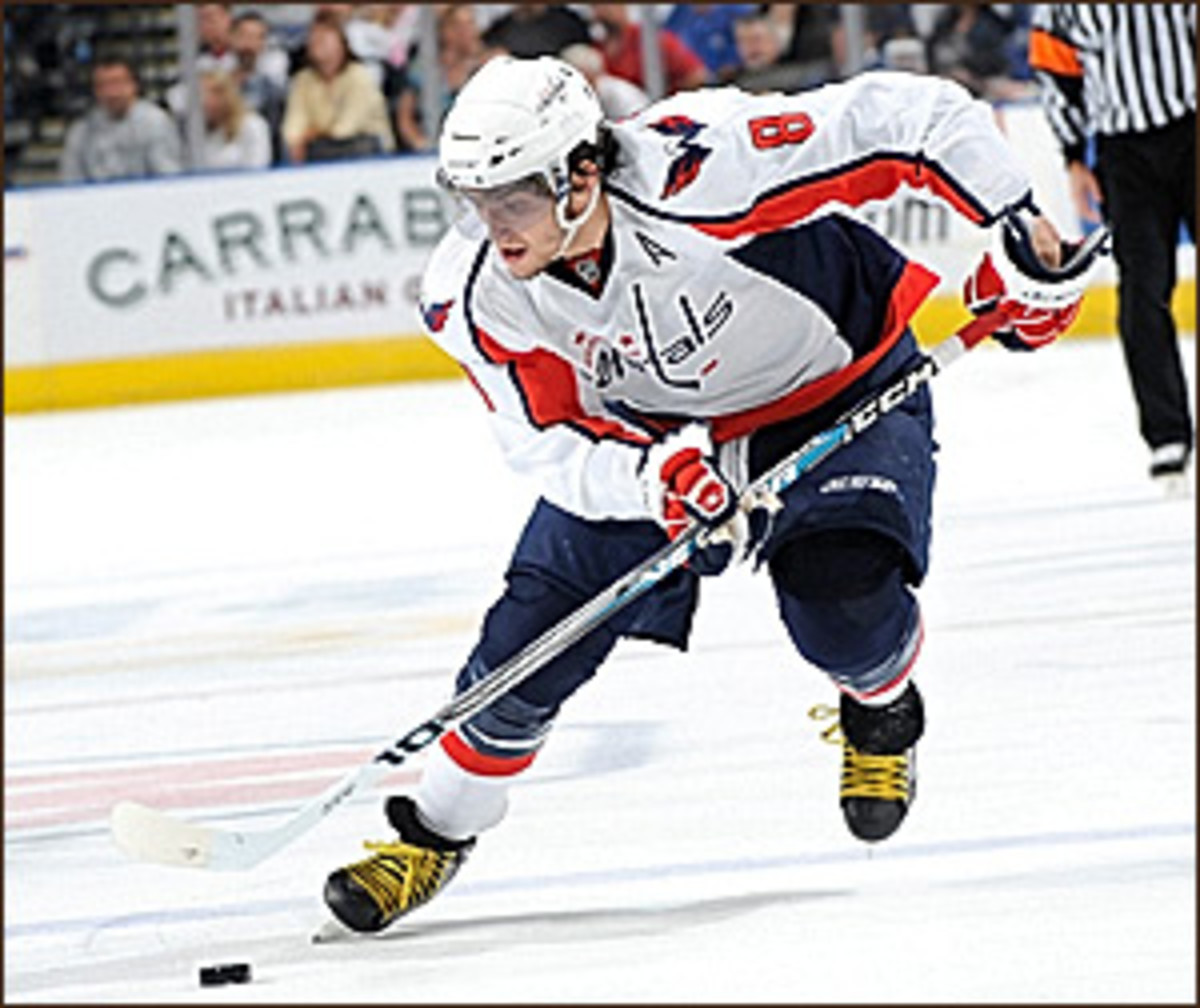Giving it all away
Simply look at the contracts signed over the past months as an indicator.
The most recent was Monday's deal in Dallas with Mike Ribeiro. At 27 he was eligible for free agency on July 1. The Stars made sure that he never hit the market, giving him $25 million over five seasons. That is a doubling of his current salary and continues a trend of teams extending deals to their core players that are both inflationary and long-term. Players are finding out that they don't have to sacrifice dollars to get length. The mere specter of impending free agency is enough to have guys cashing in.
But tendering preemptive offers to unrestricted free agents isn't the most alarming economic trend. That dubious distinction goes to what is unfolding with restricted free agents. The Flyers signed Mike Richards to a 12-year, $69 million deal. He was making less than $1 million. Ryan Getzlaf of the Ducks signed for similar money over five seasons. Why? Because under the current CBA, entry level contracts for Group 1 players cannot be extended.
Instead of having their young future stars become restricted free agents -- and be susceptible to offer sheets from other clubs -- teams are acting hastily. No one is giving the law of supply and demand a chance to take effect. If the teams allowed the pool of restricted free agents to swell, the demand would wane. But, by depleting that pool before July 1, demand will increase for those not inked to these high water salaries.
See the cycle? Detect the danger? Inadvertently, the clubs have created another class of elite free agents who can now expect max-money.
This is particularly true in the Southeast Division, where the Capitals have Alex Ovechkin becoming a restricted free agent at the end of the season. Given what has transpired with Richards and Getzlaf, what is Ovechkin to expect? He reportedly dismissed an offer prior to the holiday season that was in the $7.5 million range to span the next five seasons. What is his incentive to sign before July 1 if the Capitals don't ante up? Someone this summer will certainly float an offer sheet Ovechkin's way, and $10 million was a number reached last summer during the Oilers' pursuit of Thomas Vanek of the Sabres.
For Capitals GM George McPhee, the predicament is two-fold: fiscal responsibility vs. keeping the face of the franchise. The Caps have put Ovechkin front and center while trying to grow and build a deeper connection with their fan base. To lose face and talent in one fell swoop is tough for any team, and it has a destabilizing effect both on and off the ice. That simply gives young stars like Ovechkin more leverage. But that is the risk of tying a team's identity so closely to an individual, which is a pattern in markets like the Southeast, where the perception is that marquee value is essential to drawing fans to the rink.
So, while there is a delicate balance to strike between team identity and star power on a local level, the league-wide consequences are ongoing. Unlike unrestricted contracts, these high-priced, fear-factor offerings to restricted free agents count as comparables in the arbitration process.
I don't think the NHL had this version of "spread the wealth" in mind when the CBA was ratified.
With the Eastern Conference so tightly compacted, two teams have critical weeks. The Islanders continue their western sojourn by tangling with the Canucks and Flames, only to return east for a Sunday tilt at Ottawa. They've already dropped the first two games of their trip out west, in Denver and Edmonton. Continued road woes could mean falling out of the top eight in their conference.
Meanwhile, the Sabres have lost six straight, plummeting from their high-water mark of fourth in the East a mere two weeks ago. They remain on the road at New Jersey and Ottawa before heading home for a return engagement with the Devils. And while the league looks to further the buzz generated by the Winter Classic, the euphoria of hosting hasn't translated into sustaining the Sabres' early December surge. They need to end their spiral immediately, and given the schedule -- the Sabres are in a stretch of 11 of 13 on the road -- someone needs to step up as the leader of this team.





